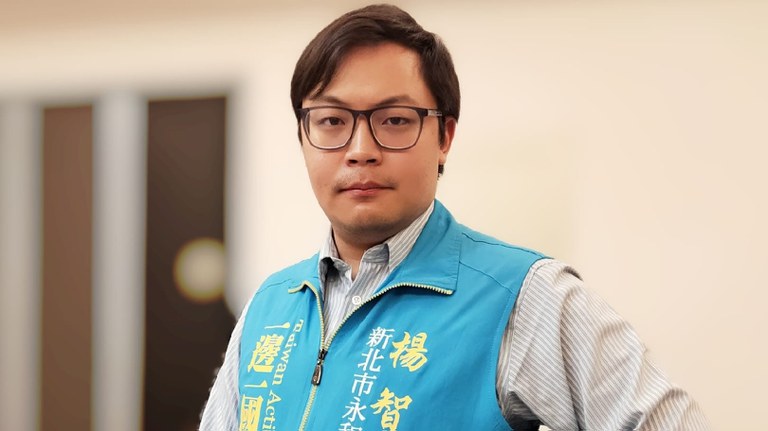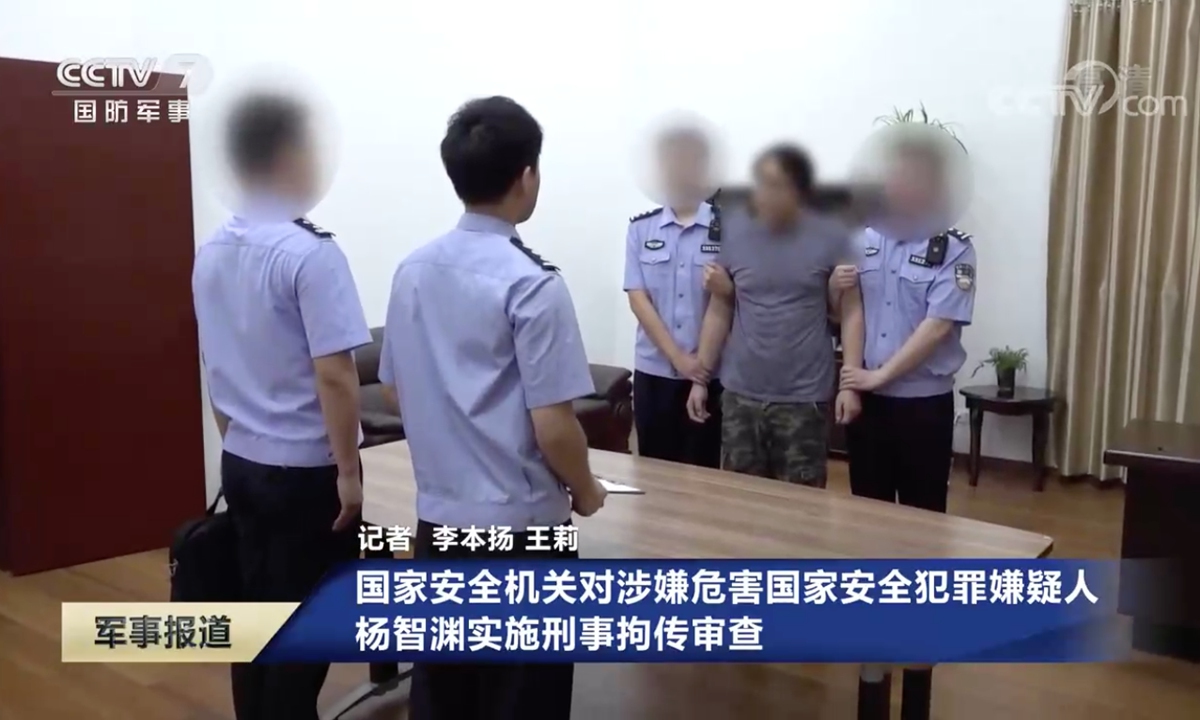Cross-strait coercion: China makes rare separatist arrest of Taiwanese citizen


While all eyes were focused on US Speaker of the House Nancy Pelosi’s visit to Taipei in August and China’s revenge military drills, few paid attention to another kind of Beijing “attack” on Taiwan, this one taking place inside its own borders.
On August 3, one day after Ms Pelosi arrived in Taipei, a 32-year-old Taiwanese pro-democracy activist called Yang Chih-yuen (楊智淵) was arrested in Wenzhou, Zhejiang province on suspicions of “separatist” activities and endangering state security. In a move that looks like another case of China’s hostage diplomacy, he was arrested by state security police and placed under China’s black jail system of Residential Surveillance at a Designated Location (RSDL) the following day. RSDL takes place at secret facilities, where torture and threats are common and the victim is held incommunicado (See our graphic report Locked Up on RSDL for more). The timing of the arrest -- more than seven months after he arrived in China and years after his suspected “separatist activities” were said to have occurred in Taiwan -- indicates his case is almost certainly politically motivated and his detention arbitrary.
In addition, Yang’s arrest also violates the Cross-Strait Joint Crime-Fighting and Judicial Mutual Assistance Agreement between China and Taiwan because according to Taiwan’s government Beijing did not inform Taipei nor Yang’s family of the arrest.
The first Taiwanese accused of separatism in China?
Yang’s case is important because it represents the first known detention of a Taiwanese individual in China accused of separatism and for supporting formal independence of the de facto independent country.
Yang’s charges are unusual for a foreigner. Charges of separatism or splittism are usually levelled at ethnic minorities such as Uyghurs or Tibetans (Uyghur scholar Ilham Tohti is currently serving a life sentence for “separatism”). National security charges have been levelled against Taiwanese people in China before, most notably Lee Ming-che (state subversion), Lee Meng-chu, Tony Shih and Cheng Yu-chin (spying), and Tsai Chin-shu (endangering state security) but this is the first publicly known case where separatism has been the alleged “crime”.
Ominously, Chinese state media quoted a scholar saying that: “”It is likely that Yang will be the first secessionist to be held accountable, but by no means the last.”
This raises questions about the safety of anyone in Taiwan or elsewhere who publicly voices support for Taiwan independence and whether they would face arrest if they travelled to China, Hong Kong or Macau. Indeed, Taiwan’s government body tasked with overseeing relations with China, the Mainland Affairs Council, issued a travel warning a day after Yang was detained for anyone considering travelling to the authoritarian country.
In mid-August this year, China released a list of seven Taiwanese officials who they called “diehard separatists” and who are now banned from entering the country. These seven join a list of three other “diehards” who include Taiwan prime minister Su Tseng-chang.
China criminalizes actions overseas
According to Chinese state media, it appears that the charges are for activities Yang did outside of China. Yang had founded the pro-independence Taiwanese National Party back in 2011 and had been active for several years in politics.
China is “expanding its powers outside its jurisdiction,” according to Lee Ming-che in an emailed interview with Safeguard Defenders. Lee served five years in prison on state security charges in China and returned to Taiwan earlier this year after he was freed. “From what China has said so far, it is only Yang's political advocacy and speech made in Taiwan that are the actions that led to his detention. There is nothing that Yang is alleged to have done inside China.”

State media said Yang will likely be prosecuted under the Anti-Secession Law and the National Security Law. The Criminal Law (Article 103) calls for life imprisonment or a minimum 10-year sentence for ringleaders and major players of for “those who organize, plot or carry out the scheme of splitting the State or undermining unity of the country.” For others who play less of a leadership role, the sentence is set between three and 10 years. Since Yang was the founder of a political party, he may well be facing the stiffer sentence range.
Questions about the case
There are many irregularities about Yang’s case.
- First, he originally went to China in January this year and had not been heard from until August when he appeared on Chinese media being arrested. Why hadn’t anyone reported him missing?
- The timing of his arrest – one day after Pelosi’s visit – looks suspiciously staged.
- Yang’s supposed “crimes” occurred when he was in Taiwan not China and years previously. If that is the case, why was Yang not arrested when he crossed the border in January?
- While Yang had been active in pro-independence politics, some sources say he was involved with pro-unification activities too in recent years. However, other pro-China Taiwanese have also been targeted in recent years (eg Tsai Chin-shu).
- Why did Yang go to China? With such a public record of supporting Taiwan politically, coupled with several arrests of Taiwanese in the past few years on national security charges, surely he would have viewed it as a risky endeavour?
- A great deal of effort went into publicly announcing his detention and RSDL. It was carried by all the major CCP mouthpieces, video was shown of him (with blurred face) cuffed and flanked by police officers. Earlier cases of Taiwanese political targets were simply disappeared and news of their detention came weeks, months, in one case even more a year after they had disappeared.